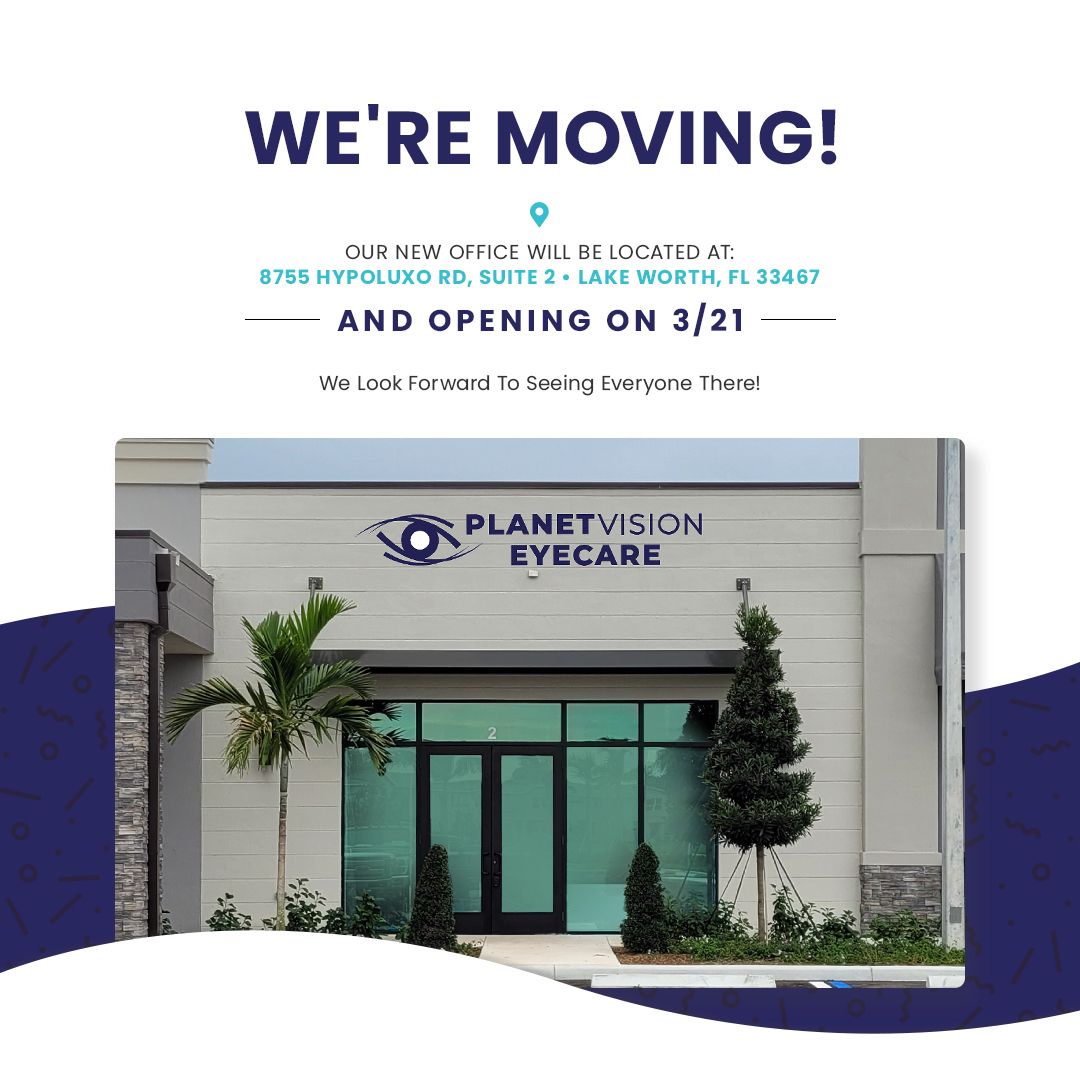
Spring is in the air, bringing longer days, warmer temperatures, and the beauty of blooming flowers. While the season is a time for renewal and growth, it also introduces environmental factors that can affect the health of your eyes. From pollen to increased UV rays, spring can present a few challenges for eye comfort and overall health.
As we transition into this vibrant season, it's important to take proactive steps to protect and care for your eyes. Let’s explore the environmental factors that impact eye health in the spring and how you can prepare to keep your eyes healthy and comfortable all season long.
1. Pollen and Allergies: A Common Spring Trigger
One of the most well-known springtime challenges is the increase in pollen. Trees, grasses, and flowers release pollen into the air, which can lead to seasonal allergies. For many people, this means red, itchy, watery, and sometimes swollen eyes. These symptoms can be frustrating and disruptive, but there are steps you can take to minimize the impact.
How to Manage Allergy-Related Eye Symptoms:
Stay indoors during peak pollen times: Pollen levels tend to be highest in the early morning hours and on windy days. If possible, try to stay indoors during these times to avoid exposure.
Keep your windows closed: Prevent pollen from entering your home by keeping windows shut, especially on days when pollen counts are high.
Wash your face and hands regularly: Allergens can linger on your skin and clothes, so it’s important to wash your face and hands frequently to remove any pollen that might have transferred.
Use over-the-counter allergy eye drops: These drops can help alleviate irritation by reducing inflammation and washing away allergens from your eyes.
2. Increased UV Exposure: Protect Your Eyes from the Sun
As the weather warms up, you’ll likely spend more time outdoors, and while sunlight can be beneficial for your mood and vitamin D levels, increased exposure to ultraviolet (UV) rays can be harmful to your eyes. Prolonged UV exposure can lead to various eye conditions such as cataracts, macular degeneration, and even eye cancer.
How to Protect Your Eyes from UV Damage:
Wear sunglasses: Choose sunglasses that block 100% of UVA and UVB rays to protect your eyes from the harmful effects of sunlight. Look for polarized lenses to reduce glare, especially when you’re outdoors near water or snow.
Use a wide-brimmed hat: A hat with a wide brim can help provide additional protection from the sun, especially during the peak hours of UV intensity (typically between 10 a.m. and 4 p.m.).
Avoid staring directly at the sun: Even on cloudy days, UV rays can reach your eyes. Always protect your eyes with sunglasses, especially when spending extended time outdoors.
3. Dryness and Wind: Springtime Dry Eye Issues
Spring often brings stronger winds and fluctuating humidity levels, both of which can contribute to dry eyes. If you’re someone who already suffers from dry eye syndrome, the season change can make symptoms worse. Dryness can lead to irritation, redness, and even blurred vision, which can make daily tasks more difficult.
How to Manage Dry Eyes During Spring:
Use lubricating eye drops: Artificial tears can help keep your eyes moist and provide relief from dryness. Choose preservative-free drops if you use them frequently.
Stay hydrated: Drinking plenty of water throughout the day helps maintain moisture in your eyes and can reduce dryness.
Use a humidifier: Dry air can make your eyes feel more irritated, so using a humidifier in your home or office can help maintain moisture in the air and alleviate dryness.
Protect your eyes from wind: Wearing sunglasses or goggles can help shield your eyes from wind and reduce the evaporation of tears, especially when you’re outside on windy days.
4. Spring Cleaning: Keep Your Environment Allergen-Free
As you start spring cleaning around your home, don’t forget about the impact dust, mold, and other allergens can have on your eye health. Cleaning up these environmental triggers can help reduce the buildup of allergens that may irritate your eyes.
How to Keep Your Home Allergen-Free:
Vacuum regularly: Use a vacuum cleaner with a HEPA filter to remove dust and pollen from carpets, rugs, and upholstery.
Wash bedding frequently: Bedding can accumulate dust mites, pollen, and other allergens, so make sure to wash sheets, pillowcases, and blankets regularly.
Keep windows closed on high pollen days: As mentioned earlier, keeping your windows shut can prevent pollen from entering your home. It’s especially important to avoid opening windows during the peak of pollen season.
5. Eye Care Tips for Contact Lens Wearers
If you wear contact lenses, you may find that spring allergens and dryness make your lenses feel uncomfortable or irritating. Allergens can cling to your lenses, causing discomfort and sometimes leading to infection if not properly managed.
How to Care for Your Eyes and Contact Lenses in Spring:
Switch to daily disposable lenses: Daily disposable lenses reduce the buildup of allergens and bacteria, as you throw them away at the end of each day.
Clean lenses properly: Always follow the recommended cleaning routine for your contact lenses to prevent allergens from building up and causing irritation.
Consider wearing glasses: If you’re experiencing excessive irritation, consider switching to glasses during allergy season to give your eyes a break from the discomfort of wearing contacts.
Final Thoughts: Keep Your Eyes Comfortable and Healthy This Spring
Spring is a wonderful season to enjoy the outdoors, but it’s important to be mindful of the environmental factors that can affect your eye health. Whether it’s pollen, UV rays, wind, or dryness, taking proactive steps can help ensure that your eyes stay comfortable and protected throughout the season.
By following these tips and making simple adjustments to your daily routine, you can enjoy all that spring has to offer while keeping your eyes healthy and happy. If you experience persistent discomfort or changes in your vision, don’t hesitate to consult with your optometrist for personalized care and advice.









